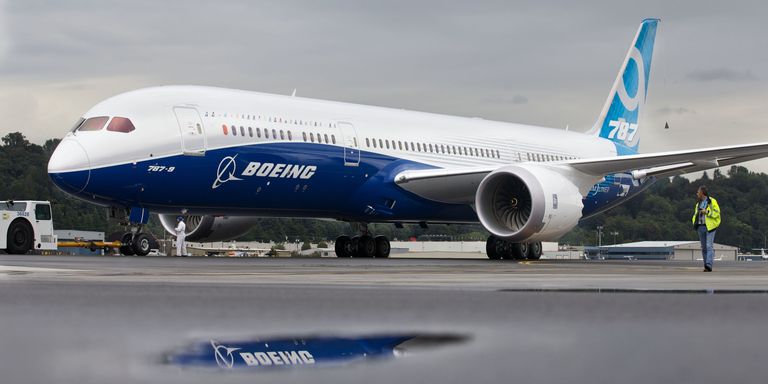When President Trump scrapped the Iran nuclear deal and imposed sanctions earlier this week, Boeing’s prospective sale of $9.5 billion of jets to Iran Air effectively went up in smoke. Yet the outcome is more a lost opportunity than a blow to current plans for the Seattle-based aerospace giant.
During President Obama’s term in 2016, two Iranian deals for 110 aircraft were green-lighted. But Boeing has always worried that the prospects for these jet sales were on shaky ground, given Trump’s hawkish views on Iran. In fact, Boeing has not delivered any airplanes or firmly booked the orders.
In a statement issued after Trump’s announcement on Tuesday, Boeing explained that it “will consult with the U.S. Government on next steps. As we have throughout this process, we’ll continue to follow the U.S. Government’s lead.”
The prospective sales involved an order from Iran Air for fifty 737 MAX 8s, fifteen 777-300ER widebody jets, and fifteen next-generation 777-9X widebodies. Another order from Iran Aseman Airlines included 30 MAXs.
The total revenue for those sales would have amounted to just under $20 billion. But based on market pricing data from the aircraft-valuation consultancy Avitas, the actual value—after standard industry discounts—would have been closer to $9.5 billion.
While the 777 orders in particular would have been a significant boon to sustaining the company’s 777 production rate and improving prospects for the new 777X, Boeing CEO Dennis Muilenburg said that production plans wouldn’t be impacted if the Iran deal were terminated.
“We have no Iranian deliveries that are scheduled,” Muilenburg told Wall Street analysts on Boeing’s first-quarter earnings conference call. “The plan that we outlined for you, the production rate that we’ve put in place, is not dependent on the Iranian orders.”
Boeing’s rival Airbus, on the other hand, can’t afford to be so complacent. The European-based jet maker had recently won orders for 98 aircraft worth about $8.4 billion from Iran, and officially added those sales to its order book, rushing to deliver the first aircraft as soon as it was legal.
Since the deal was made, Airbus has been able to deliver three jets, one A321, and two leased A330s, to Iran. But it’s unlikely that Airbus will be able to take further competitive advantage. That’s because U.S. sanctions will likely prohibit future deliveries of Airbus planes to Iran since all of its jets are made with a significant amount of U.S. parts.
And adding another nail to the coffin, on Tuesday U.S. Treasury Secretary Steve Mnuchin said that the licenses granted to Airbus and Boeing under the 2016 Iran deal will now be revoked.
In a statement Tuesday, Airbus spokeswoman Mary Anne Greczyn said the company is “carefully analyzing the President’s announcement and will be evaluating next steps.”
She said Airbus will remain “in full compliance with U.S. sanctions and export control regulations.”





